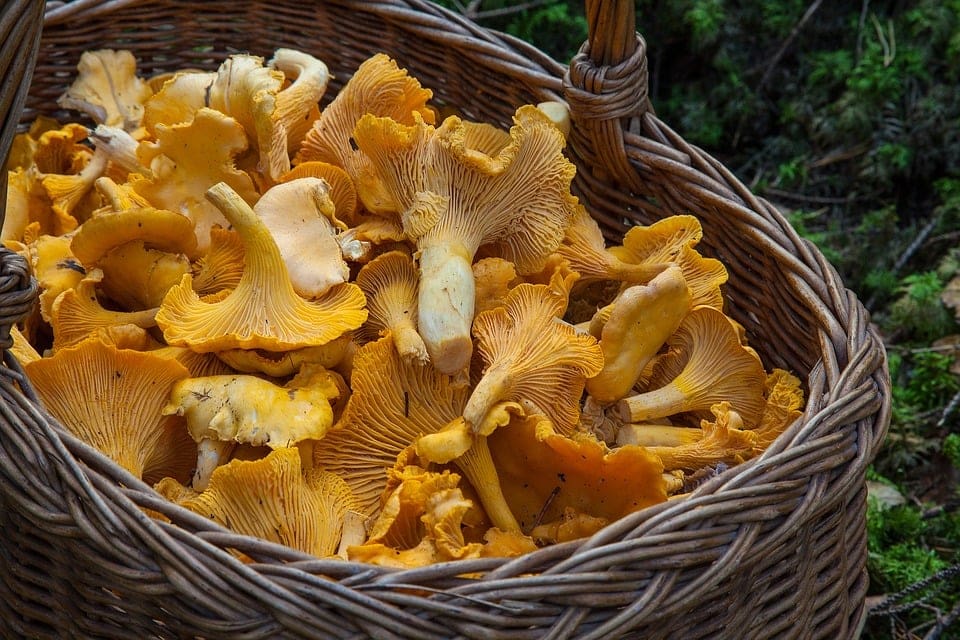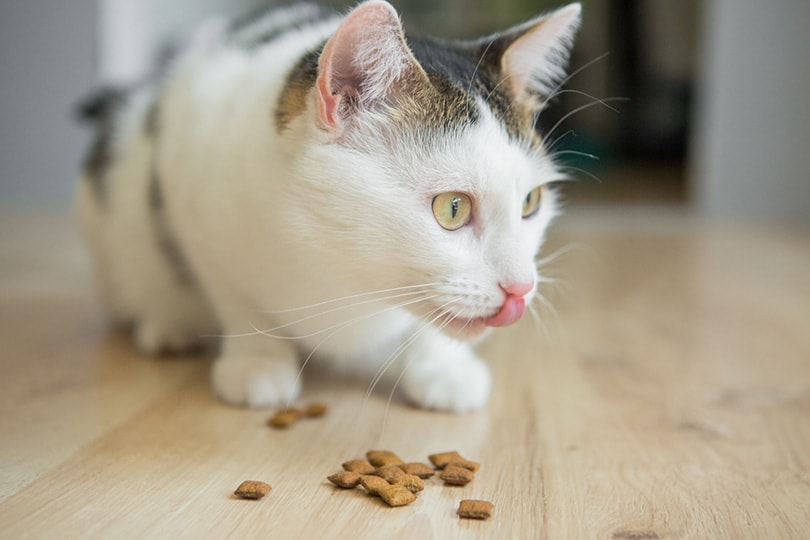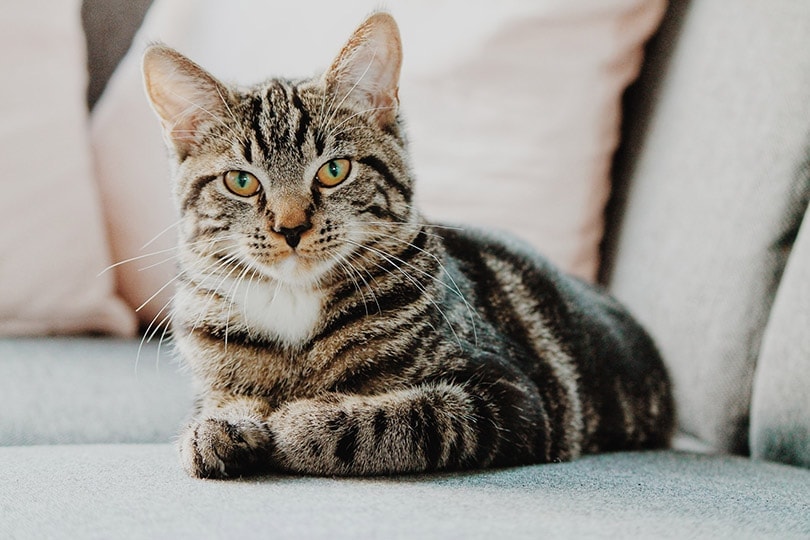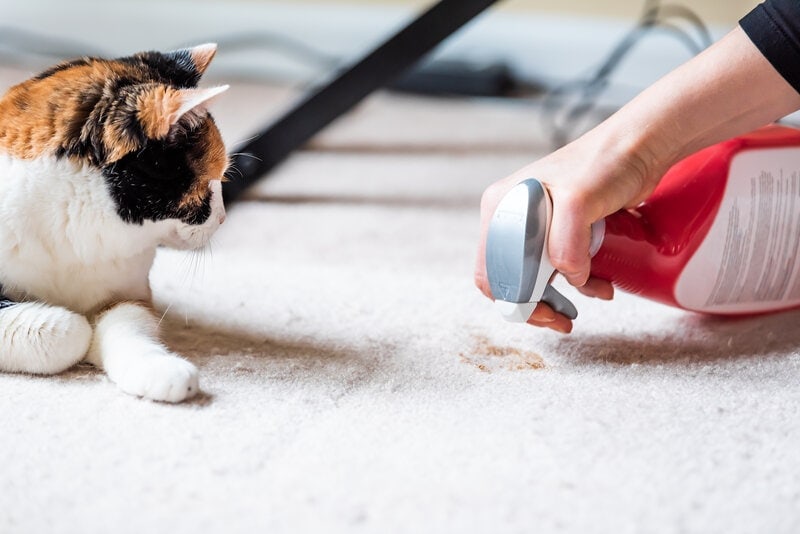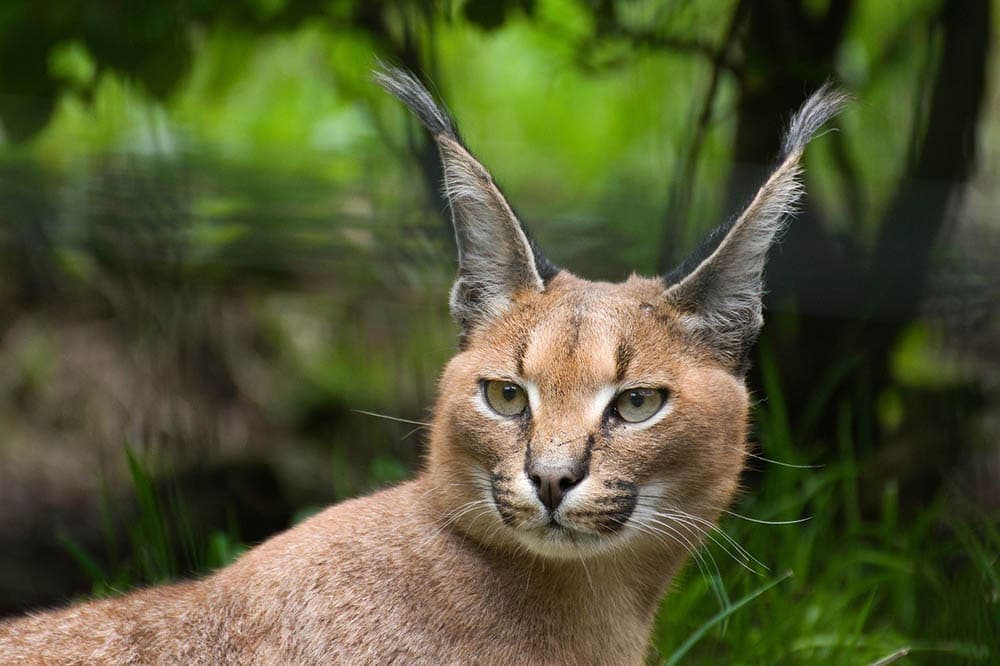If your cat has ever tried to eat your dinner, you’ve probably wondered whether human food is safe for your feline friend. Generally speaking, you should stick to giving your kitty food that is formulated specifically for cats, but every now and then it’s okay to share your food with your pet.
But what about mushrooms? Overall, you should avoid feeding mushrooms to your cat, but some store-bought mushrooms can be safe for cats. If you choose to share mushrooms with your cat, choose a safe type such as cremini, portobello, or button. In this article, we discuss in more detail which mushrooms are not safe for cats, why cats like the taste of mushrooms, and human foods that are safe for cats to eat.
Which Mushrooms Are Not Safe for Cats?
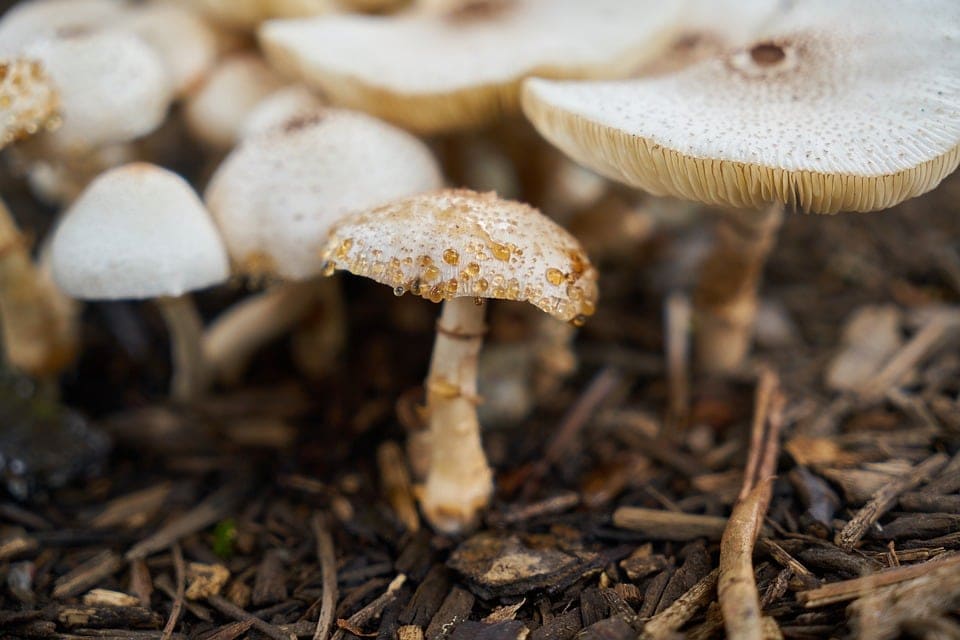
In general, you should always avoid feeding your cat any type of wild mushrooms as they can be toxic to your kitty. Not all wild mushrooms are toxic to cats, but to be safe, you should avoid all types of wild mushrooms. Many cats remain indoors at all times, in which case wild mushrooms are likely not an issue. However, some outdoor cats may try to eat a wild mushroom if they are out wandering in your yard.
A cat who has eaten a toxic wild mushroom may become ill. The type and seriousness of the illness depend on how many and what type of mushroom your cat ate. There are four main types of toxins that you should be aware of:
- Gastrointestinal: As you might guess, a mushroom that contains gastrointestinal toxins will upset your cat’s stomach. There are several varieties that can cause gastrointestinal problems, but one variety of note is the muscarinic mushroom. Your cat may experience diarrhea and vomiting, as well as dehydration and weakness that comes with the primary symptoms. Depending on how severe the vomiting and diarrhea are, you may need to take your cat to a pet hospital to treat the problem.
- Nephrotoxic: Mushrooms that contain nephrotoxic toxins will negatively affect your cat’s kidneys. Symptoms are often delayed by up to a week, which is dangerous because quite a lot of damage can be done by the time you are able to address the problem. Thankfully, mushrooms in this category are somewhat rare in North America, so you probably don’t need to worry too much about this type of toxin if you live in the United States.
- Hepatotoxic: Mushrooms in this category can cause damage to your cat’s liver. One of the most common mushrooms that contain this type of toxin is the Amanita mushroom. Your cat may experience gastrointestinal symptoms up to 24 hours after eating one of these mushrooms. Sometimes, pet owners in this situation are overly concerned with addressing the stomach issues without realizing that there is also underlying liver damage. Your pet may become lethargic, weak, and jaundice (yellowing of the skin). You need to seek immediate medical attention for your cat if you suspect that they have eaten a hepatotoxic mushroom, as liver failure is fatal.
- Neurotoxic: Some mushrooms have neurological consequences, including isoxazole, psilocybin, and hydrazine mushrooms. Your cat may experience tremors, disorientation, a lack of coordination, or even seizures if it eats one of these mushrooms. Unlike the other mushrooms in this list, your cat is more likely to find mushrooms that contain neurotoxins inside their home than in their backyard. Kitties most often encounter these mushrooms while checking out their owner’s hallucinogenic mushrooms.
Why Do Cats Like Mushrooms?

Since cats are strict carnivores, you might be wondering why they would be interested in eating mushrooms anyway. It turns out that while cats aren’t able to taste sweet foods, they do have the ability to taste umami flavors. Since umami flavors are also found in the amino acids of different kinds of proteins, a cat who is attracted to mushrooms is most likely interested in them because, to your cat, they smell and taste similar to meat.
What Other Foods Are Safe for Cats?
While you shouldn’t make a habit of giving your cat food off your plate, it’s okay to do so every now and then as long as you’re conscientious about which foods you share with your kitty. Below is a shortlist of foods you can feel free to occasionally give your cat in small portions as a treat.
- Meats such as cooked chicken, beef, or turkey
- Cooked or canned fish (but not raw)
- Cooked eggs
- Whole grains like brown rice
Related Read: Can Cats Eat Cinnamon? What You Need To Know!
Final Thoughts
In summary, it is probably safe to feed your cat store-bought mushrooms every once in a while. However, there are several wild mushrooms that are considered toxic to cats that you should prevent them from eating at all costs. If you want to be safe, don’t allow your cat to eat any type of mushroom. Instead, you can offer your pet a bite of meat, fish, eggs, or whole grains from your plate—just don’t make it a habit, as too many treats can lead to obesity in cats.
Looking for more ideas on what cats can eat and drink? Try:
- Can Cats Eat Broccoli? What You Need to Know!
- Can Cats Drink Cranberry Juice? Everything You Need to Know
Featured Image Credit: Pixabay
